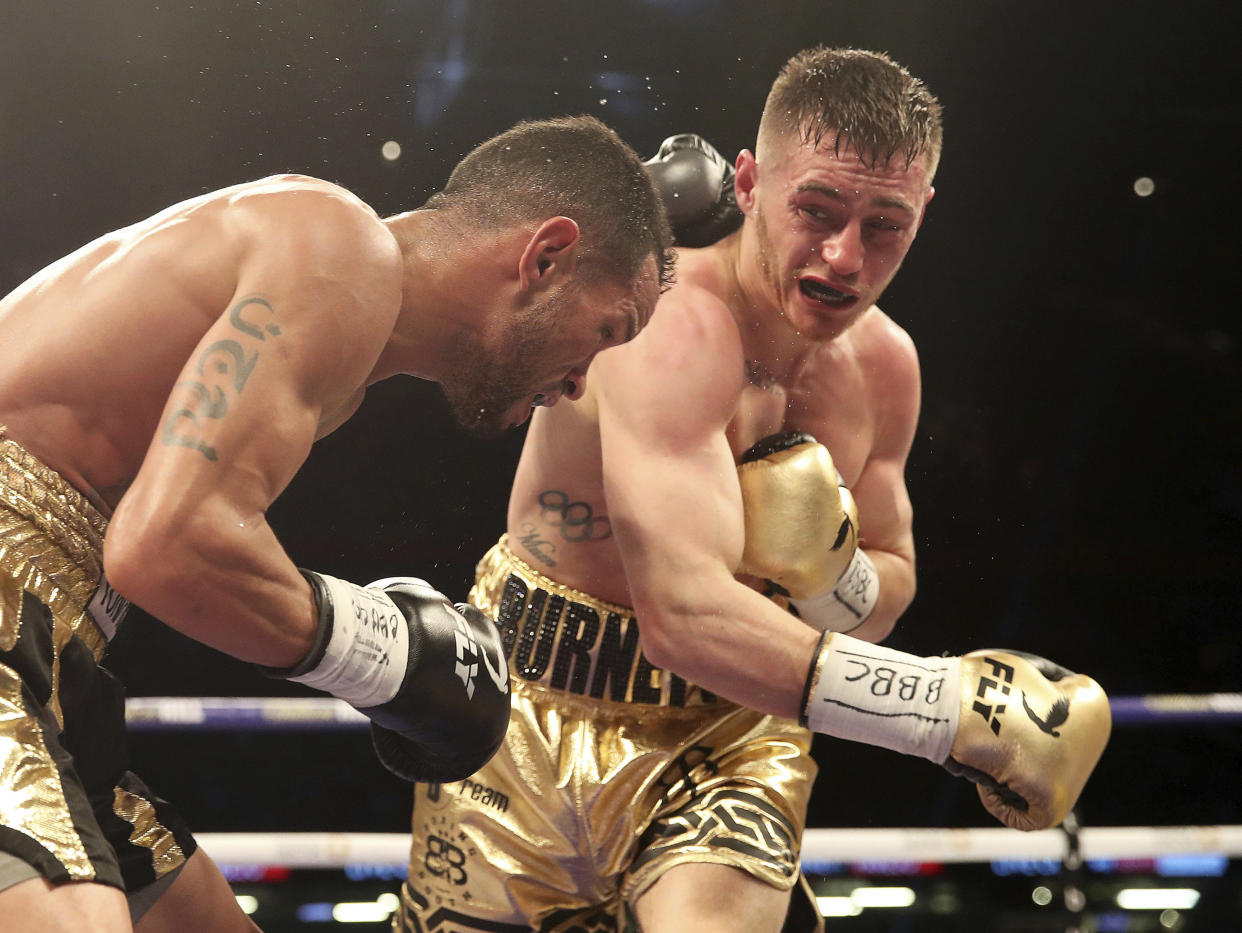Lack of TV deal hurting what is otherwise an outstanding World Boxing Super Series

The World Boxing Super Series has been, in so many ways, exactly what boxing needed. It gathered some of the best fighters in a division and had them fight each other to determine the best.
It’s largely flown under the radar in the U.S. because of a lack of television coverage, but the fights in the cruiserweight and super middleweight tournaments have been outstanding.
The finals of the cruiserweight tournament pits Murat Gassiev, a future star, against Aleksandr Usyk. It was supposed to have been Friday in Saudi Arabia, but an injury to Usyk forced a postponement and no date has been set.
The super middleweight division finale is also on hold because of a shoulder injury to George Grove.
Those kinds of injuries are what make tournaments like this so difficult and so rewarding when they work.
The WBSS announced that in Season 2, it will have three tournaments instead of two, and announced Wednesday that bantamweight will be one of them. Three world champs – WBA champion Ryan Burnett, IBF champion Manny Rodriguez and WBO champion Zolani Tete – agreed to be part of the field.
“I have always wanted to be a world champion and to unify the titles against the best opposition out there,” said Burnett, who is 19-0 with nine knockouts. “Now the World Boxing Super Series allows me to continue my dream against the other champions in the bantamweight division.”
WBO super featherweight champion Vasyl Lomachenko, who faces WBC lightweight champion Jorge Linares Saturday at Madison Square Garden on ESPN, gave a tacit endorsement of what the WBSS is trying to do when he was asked what one thing he’d most like to see changed in boxing.
He said he wants sanctioning body titles to qualify fighters to compete for one, unified, champion per division.
“If it were in my power, I would say that being the WBO champion, or the WBC, or any of the sanctioning body titles, would only be a license to fight the real champion,” Lomachenko said. “I strongly believe there should only be one champion in a weight class, not two or three or four, and that when you have one of those belts, you should be looking to fight the others to get to that one champion.”
In a way, that is what the WBSS does. The fights in the first season have been outstanding, and Gassiev emerged as a fighter who could develop like his friend and teammate, Gennady Golovkin, and become a worldwide star.
But the fights weren’t on television in the U.S. Top Rank president Todd duBoef wanted to make a deal with WBSS organizers to put one of them on ESPN, but they insisted on WBSS branding and that was a no-go for ESPN, so the deal was scuttled.
The tournament doesn’t accomplish what it could if the fans can’t see it, and that has to be the focus heading into the second season for Kalle Sauerland, the tournament’s founder and chief boxing officer.
It’s a great concept, and the fighters gave their hearts and souls to the chase.
They just deserve to be rewarded for their efforts with worldwide exposure, and given the lack of a TV deal in the U.S., that’s not the case just yet.
More from Yahoo Sports:
• NBA assistant coach resigns amid reports of misconduct
• Report: UFC champ rejected Conor McGregor’s apology
• Mike Trout reveals the one pitcher he can’t figure out
• Hall of Famer has unusual, grim post-MLB career


